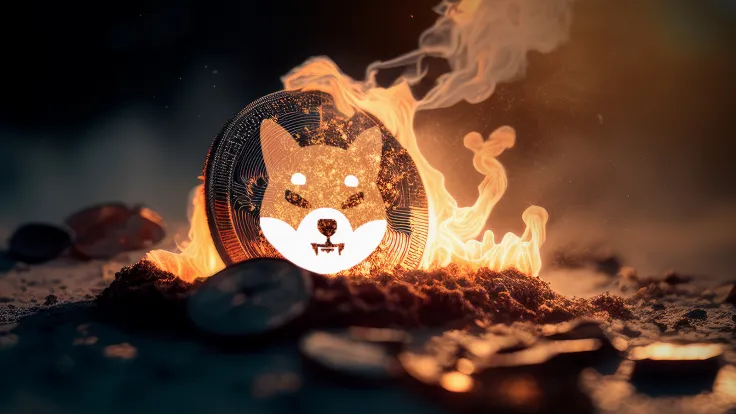
Disclaimer: The opinions expressed by our writers are their own and do not represent the views of U.Today. The financial and market information provided on U.Today is intended for informational purposes only. U.Today is not liable for any financial losses incurred while trading cryptocurrencies. Conduct your own research by contacting financial experts before making any investment decisions. We believe that all content is accurate as of the date of publication, but certain offers mentioned may no longer be available.
Shiba Inu burn rate is in the green, seeing a 500% increase from the previous day as several millions of SHIB are sent to the fiery furnace.
The week that just concluded saw over half a billion SHIB burned, with millions of SHIB also sent to dead wallets in the last 24 hours.
Per Shibburn, a total of 564,273,572 SHIB tokens were burned in 88 transactions in the last seven days. This is worth $4,425. The weekly burn rate is down by 74%, per the graphic posted.
The last 24 hours saw a total of 135,851,937 SHIB tokens burned in 11 transactions, causing a 500% surge in the daily burn rate.
At the time of writing, SHIB was marginally down 0.90% in the last 24 hours to $0.0000078. The token is down 3.64% in the last seven days. The week gone by saw the successful launch of Shibarium. The new Shiba Inu Layer 2 blockchain has drawn over a million interacting wallets, signaling its utility and adoption.
Wrapped Bone announcement is imminent
In an update, Shiba Inu lead Shytoshi Kusama made it known that WBONE was completed and that an announcement would be made soon by Shiba Inu developer Kaal Dhairya.
In an X post, Shiba Inu team member Lucie explains further about WBONE, which stands for Wrapped Bone.
WBONE is a Shibarium-based token that represents BONE in a standardized form compatible with the Shibarium network's smart contracts and decentralized applications (dApps).
WBONE enhances the compatibility of BONE with other tokens and dApps on the Shibarium network. Users can wrap their BONE tokens into WBONE, which allows them to seamlessly interact with various DeFi (decentralized finance) protocols and decentralized exchanges (DEXs) that may require tokens to be in a standardized format.

 Vladislav Sopov
Vladislav Sopov Dan Burgin
Dan Burgin